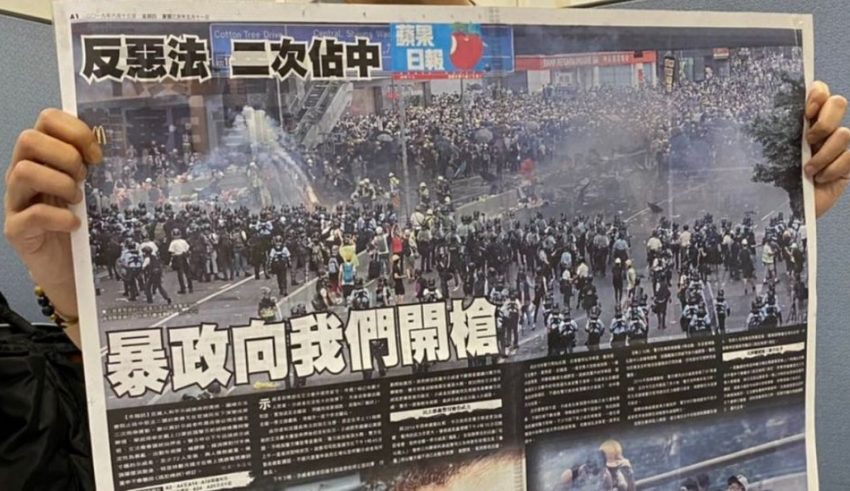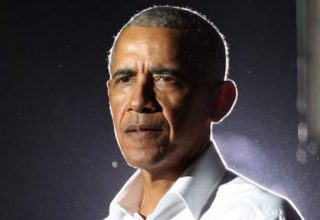
Hong Kong’s largest pro-democracy paper Apple Daily has announced its closure, in a blow to media freedom in the city.
The tabloid’s offices were raided last week over allegations that several reports had breached a controversial national security law.
Police detained the chief editor and five other executives, and company-linked assets were frozen.
The publication had become a leading critic of the Hong Kong and Chinese leadership.
The Apple Daily management said that “in view of staff members’ safety”, it had decided “to cease operation immediately after midnight” – making Thursday’s publication the final printed edition.
UK Foreign Secretary Dominic Raab said the paper’s closure was a “chilling blow to freedom of expression in Hong Kong”.
The digital version of the 26-year old paper will no longer be updated after midnight.
A separate announcement by publisher Next Digital thanked the readers for their “loyal support” as well as its journalists, staff and advertisers.
‘A knife over your head’
The closure comes after sustained pressure on the paper from the authorities.
Apple Daily founder Jimmy Lai, who has long been a critic of the Chinese Communist Party, is already in jail on a string of charges.
Last Thursday, some 500 police officers raided the publication’s newsroom, saying its reports had breached the city’s new national security law, which makes undermining the government a criminal offence.

The arrests struck fear in employees at the paper and a number quit the publication soon after.
A current affairs reporter for Apple Daily said after last week’s raid: “I had mixed feelings. On one hand, I was angry at the ruthlessness of the regime. I was also sad that Hong Kong might not have Apple Daily but I also felt fear.”
From sensationalist tabloid to voice of dissent
Analysis by Yvette Tan, BBC News
It started off as a local rag, best known for its sensationalist articles and bold catchy headlines – promising sex, drugs and scandal. But over the past 26 years, it evolved into one of the city’s loudest pro-democracy voices – one of few that dared to challenge China.
Its founder Jimmy Lai was labelled by Beijing as an “anti-China troublemaker”, the paper accused of causing chaos. Advertisers were told to stay away from Apple Daily but Lai and his team did not back down. In fact, the paper doubled down on its critical coverage.,
“They were really a strong and loud critical voice to the government,” one professor told me. “It’s a terrible blow for press freedom in Hong Kong. I think everyone is in shock right now.”
Police had accused the newspaper of publishing more than 30 articles calling on countries to impose sanctions on Hong Kong and mainland China since 2019.
They also arrested the editor-in-chief and four other executives at their homes and froze HK$18m ($2.3m; £1.64m) of assets owned by three companies linked to Apple Daily – Apple Daily Limited, Apple Daily Printing Limited and AD internet Limited.
The paper then said it only had enough cash to continue normal operations for “several weeks”.
On Wednesday, a 55-year-old man, identified as an Apple Daily columnist, was arrested on suspicion of conspiring to collude with a foreign country or foreign forces, local media reports said.
What is the national security law?
China introduced the national security law in Hong Kong last year in response to massive pro-democracy protests that swept through the administrative region.
The law essentially reduced Hong Kong’s judicial autonomy and made it easier to punish demonstrators and activists. It criminalises secession, subversion and collusion with foreign forces with the maximum sentence life in prison.
Since the law was enacted in June, more than 100 people have been arrested under its provisions.
Source: bbc.com

















